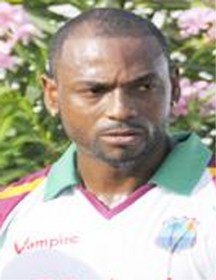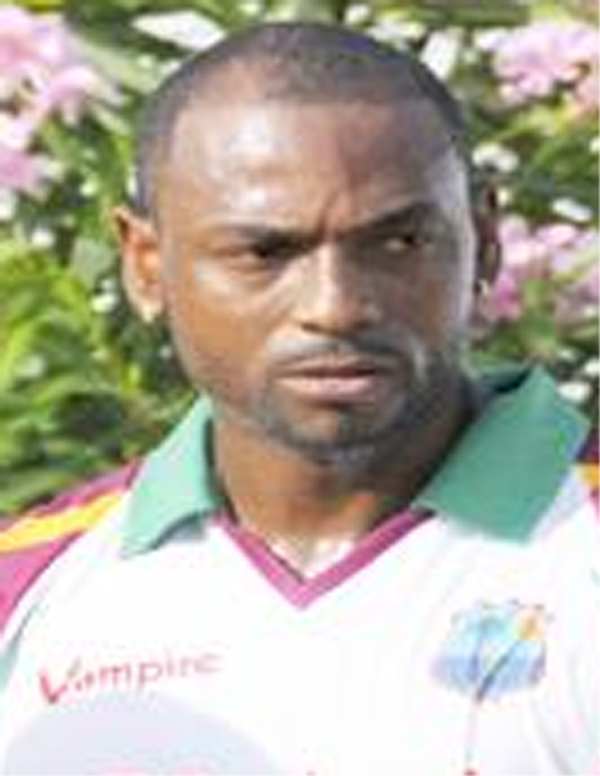(Cricinfo) “Make sure you get this in,” said Floyd Reifer, as the interview drew to a close. “I want the people in the Caribbean to know that this is a West Indies team that is dedicated to West Indies cricket. This is not a second-string team. We will do the six million people of the Caribbean proud at the ICC [Champions Trophy] tournament.”

Ordinarily a captain rallying his team would create not so much as a ripple in international cricket. From Durban to Dhaka, such expressions of confidence – whether heartfelt or contrived – are considered de rigeur. Another tick for the sports psychologists; another soundbite for the media.
But when the call to arms is sounded in the midst of intense industrial action and directed towards a hastily cobbled-together collection of wizened veterans and raw rookies, the comments assume far greater importance. Around the time mediation talks between WIPA and the WICB broke down on Tuesday, Reifer, the West Indies’ 37-year-old stand-in captain, risked the ire of the union and its striking players by insisting the show must go on and expressing pride in his new-look squad.
“The fans have a right to feel bad about some of the things that are going on, but there must be cricket,” Reifer told Cricinfo. “The game cannot stop because of other issues. I do not listen to the negative talk, I don’t read negative things. What I know is that we have a group of players here right now who are happy to be here and are happy to play for the many people in the Caribbean who have cricket at heart.”
Many a modern West Indies captain has supped from a poisoned chalice, but perhaps none so toxic as that inherited by Reifer. In shades of Bob Simpson circa 1977, Reifer was called upon to lead an “establishment XI”, after a decade on the outer, while senior players stood against the board.
The initial results were underwhelming to say the least – a 0-2 Test series defeat to Bangladesh, followed by a 0-3 whitewash in the ODIs; and with the likes of Chris Gayle, Ramnaresh Sarwan and Shivnarine Chanderpaul unavailable for this month’s Champions Trophy, few are expecting a prompt reversal in fortunes.
The Reifer story redefines unusual. Called into a West Indies team battling a myriad of transitional issues, Reifer played four unspectacular Tests and two one-day internationals between 1997 and 1999 against Sri Lanka and South Africa. Over the ensuring decade, the Bajan batsman established a solid domestic record in the Caribbean and Scotland before gravitating towards coaching. He had assumed the role of player-coach with the University of the West Indies in recent seasons.
Then came the call. On the evening of July 7 Reifer was asked to board a flight to St Vincent. On the morning of July 9 he lead an almost unrecognisable West Indies side onto Arnos Vale for the first Test against Bangladesh. At a time when most cricketers are penning epilogues to their careers, Reifer was reeling off new chapters. But whether they will receive positive reviews remains to be seen.
Inevitably, some will view Reifer as a regional pariah for accepting work at a time when many of his contemporaries were feuding with their employer.
That said, the game in the Caribbean might have faced financial ruin under the weight of ICC fines and legal challenges from broadcast rights-holders had the board been unable to fulfill its hosting commitments. Still, right or wrong, Reifer intends to continue at the helm of the West Indies team indefinitely, and spark a revival that many have attempted but few have achieved.
“I see my role as trying to help rebuild West Indies cricket,” he said. “We have a group of young players here who are trying to take West Indies cricket forward. They have shown commitment and dedication. Before we went out to play on the first day against Bangladesh I told them that they were the West Indian team, not a second-string team, and to go out there and fight for the people of the Caribbean.
“I don’t feel there is any pressure on me. I was very grateful to receive the opportunity to captain the West Indies. If you go through history, there are probably only 25 or 30 people who have had that honour. It is what every young cricketer in the region dreams of doing. I give thanks to God for the opportunity. If [the WIPA-WICB dispute] ends and they don’t see a role for me anymore, I will graciously move on. But if they think that I have performed well and led the team well, then I can’t see any reason why I could not play on for the next couple of years.”
Reifer is not prepared to discuss the recent termination of John Dyson’s coaching contract, and insists he is “not fully aware” of the intricacies of the dispute between the players’ union and the West Indies board. He is adamant he has received no negative feedback from the striking players, and is hopeful of holding his place in the West Indian side if or when the matter is resolved, even if his batting averages of 9.25 and 16.20 in Tests and ODIs suggest he will have a difficult time doing so.
He has sought leadership advice from the great Sir Garfield Sobers, and notes with no small amount of satisfaction the recent performances of Omar Phillips, Kemar Roach, David Bernard and Chadwick Walton, three of whom made their Test debuts at Arnos Vale. But it might well be that Reifer is remembered as the man who allowed Bangladesh to triple their number of Test victories over three forgettable weeks in St Vincent and Grenada this July. Only once in their previous 59 Tests had Bangladesh tasted success in the five-day format, and that to a struggling Zimbabwean side more than four years ago.
“The Bangladesh series was difficult,” Reifer said. “I received the call on the Tuesday night and the Test started on the Thursday. We hadn’t really played together and we didn’t really have time to prepare. We played tough cricket, and most of the games were quite close, but in the end you have to give credit to Bangladesh. It hurt all the guys really badly. You think of all the great West Indian players like Sobers, Walsh, Ambrose, Lara, Weekes and where they took West Indies cricket, and you desperately want to do well.
“There wasn’t really any strategy at first, but we learned as we went on. The team played some tough cricket, but made crucial mistakes at crucial times. They will learn from those and become stronger for the experience.”
Only Reifer truly knows whether his insistence that West Indies can “go deep” in the Champions Trophy is a genuine appraisal of an improving side or an attempted pick-me-up for a downtrodden squad. History appears to be on their side – West Indies have made the past two Champions Trophy finals, and won the tournament in 2004.
However, with a patchwork team and India, Pakistan and Australia in their pool, bookmakers have echoed the sentiments of most observers by installing them as 20-1 outsiders.
“Like anybody, we will go into the ICC tournament thinking we can win,” he said. “I am not saying we will go out and beat everybody, but I think we have a young and talented team that can advance. The world will be watching us, and it is an opportunity for us to show that we can go out there and play tough cricket.”

